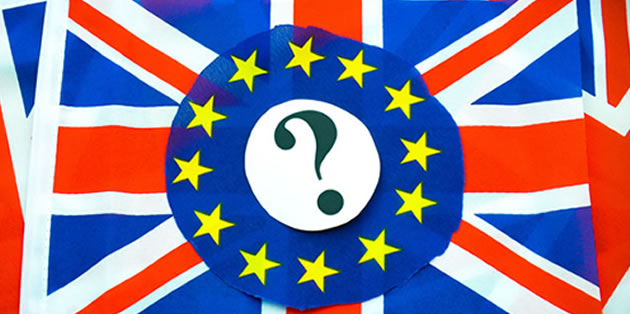- Pound Sterling (GBP) Likely to Endure Increased Volatility – Brexit fears continue to weigh
- Euro (EUR) Exchange Rates Forecast to Struggle – Bond yields continue to fall
- US Dollar (USD) Rates Subject to Market Sentiment – Brexit concerns may amplify safe-haven demand
- Citibank Forecast Increased Market Volatility to Come – Implied Sterling volatility has already reached record levels.
BoE Meeting Minutes Send GBP EUR Higher
The Pound Euro exchange rate rallied back to 1.2650 today following the Bank of England’s (BoE) policy meeting and meeting minutes.
The BoE’s warnings regarding the potential repercussions of a ‘Brexit’ were viewed as helping to support the case in favour of a ‘Remain’ vote and demand for GBP increased accordingly. The fact that policymakers argued that a ‘Brexit’ will have global implications, not just localised, also aided the Pound’s appreciation versus the single currency.
(Previously updated 11:00 16/06/2016)
Pound Euro Fails to Gain Despite Retail Sales Increase
Although the UK’s retail sales report showed unexpectedly strong sales growth in May, the Pound Euro exchange rate remained down slightly on the day’s opening levels.
Retail sales were shown to have increased by 1.0% on the month and 5.7% on the year, smashing forecasts of 0.3% and 3.8%.
Retail sales including auto fuel were also stronger-than-forecast.
The Euro derived support from the Eurozone’s positively-revised month-on-month Consumer Price Index, which was upped to 0.4%.
(Previously updated 08:30 16/06/2016)
Market volatility has caused significant currency price swings of late as traders react to any developments regarding the UK’s EU referendum. A Brexit is considered the unfavourable outcome by the majority of traders as evidenced by Sterling depreciation every time an opinion poll indicates a ‘Leave’ victory.
Analysts at Citibank predict very different outcomes for British growth between 2017 and 2019 depending on the Brexit referendum.
‘Under the arrangement of EU, there is no tariff imposed on imports and exports between member states. Currently, about 50% of UK exports go to EU countries. If the UK decides to remain in the EU, it could continue to enjoy the tariff waiver. On the other hand, if the UK decides to leave the EU, the drop in export income may hurt economic growth. Originally, we predict UK’s economic growth would range from 2 to 2.5% in 2017 to 2019. But if UK finally leaves the EU, GDP growth may slow to 0.5 -1.5%.’
Citibank also foresee a detrimental impact to financial markets in the event of a Brexit;
‘EU countries now hold UK assets worth 46% of the EU’s GDP. Uncertainties associated with Brexit may hurt UK’s loan growth and property prices. For example, London house price may drop -18%. A big economic shock to the UK could reduce the value of the EU’s banks’ assets in the UK. In the worst scenario, such losses may lead to a banking crisis.’
Today’s Bank of England (BoE) interest rate decision is not predicted to be hugely impactful given implied odds of 0% chance policymakers will make any changes. The accompanying meeting minutes may have more of an impact, however, especially if policymakers flag Brexit concerns.
Any references to the future path of UK interest rates will also be closely attended to. The BoE previously flagged inflation and wage growth as areas which would need to see improvement before the benchmark rate could be raised from record lows. While the latest figures showed steady inflation of 0.3%, consumer price pressures are still far from the Bank of England’s (BoE) 2% target.
Euro (EUR) Exchange Rate Forecast to Fluctuate on ECB Economic Bulletin, ‘Brexit’ Uncertainty
The single currency has struggled of late versus its major peers thanks to increased links to risk as the Brexit referendum draws ever closer. Most analysts agree that the long-term ramifications of a Brexit will be far more damaging to the Euro than the Pound.
Today’s domestic ecostats have potential to cause changes for the Euro. The European Central Bank’s (ECB) Economic Bulletin and Eurozone Consumer Prices reports will dominate trader focus.
However, even positive results may not be enough to boost sentiment towards the single currency. This is because yields from developed market bonds have declined significantly.
Yields from German 10-year bunds turned negative for the first time. This highlights mounting uncertainty regarding the central bank’s ability to stimulate an economic recovery in the Eurozone.
Low-yielding bonds will also reduce the impact of the ECB’s quantitative easing programme, causing many traders to predict that policymakers will have no choice but to further cut rates in order to bring inflation back to target.
US Dollar (USD) Exchange Rate Forecast to Gain on Safe-Haven Demand as ‘Brexit’ Referendum Draws Near
Given the extent of market volatility in response to Brexit uncertainty, there is a high chance that the US Dollar will continue to strengthen in response to safe-haven demand.
With that said, traders may be increasingly reluctant to invest in the US Dollar as domestic political uncertainties stymie confidence.
Now that the Presidential candidates for both parties have been all-but-confirmed, the race between Republican Donald Trump and Democrat Hillary Clinton is likely to coincide with significant USD price-swings.
Both candidates are considered controversial, but traders will likely react more positively to indications that Clinton is the front-runner given Trump’s inexperience and penchant for the dramatic.
Today’s domestic data should be of interest and likely to cause USD volatility. Mays annual Consumer Price Index is predicted to hold at 1.1%.



